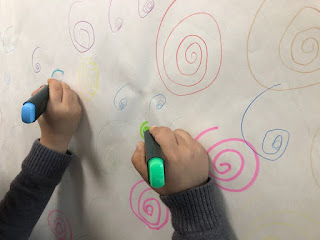WHO IS THE 'KEEPER OF THE PEDAGOGY'? (PART ONE)
One of the gifts of working in different schools across many different contexts is that it offers opportunities to gaze over the vast landscape of ‘early childhood education’ and reflect on what we do and why we do it. Whilst each context for young children’s education generates its own unique beliefs and practices, I have noticed, over time, there are also some common challenges that seem to frequently bubble to the surface. One such challenge is the idea of pedagogical sustainability.
It is no secret that one of the ‘constants’ in education is change. Schools and Early Childhood Centres are not strangers to the complex world of change as educators construct and re-construct their approaches to education inside a constant state of flux. When embraced with agency and inquiry, change can be a necessary force for strengthening of pedagogy over time, yet for many teams, change is a challenge that can wobble our confidence and dilute our intentions. For those working in International Schools, change comes partly in response to the changing dynamics of the transnational population of the school itself, but also can be as the result of broader emerging pressures, introduced by an increasingly standardized and globalized world.
Amongst the forces that pressure early childhood education is a prevailing emphasis on the collection of data (often through a singular quantitative lens), all reinforced by measurement agendas such as ‘standards’, ‘coverage’ and ‘compliance’. The quest to challenge this discourse has risen significantly, leveraging conversations of how to construct more personalized learning, agency and authentic pedagogy. The impact of the debate between the measurement rhetoric and its contrasting counterparts can mean that our own ‘sense of pedagogy’ and the beliefs that underpin our practices, can ebb and flow like the tide, often resulting in somewhat fragile and reactive definitions of practice.
Sir Ken Robinson said “education is a sophisticated human process, not an impersonal delivery system” (2015). We know it requires complex structures, pedagogical debate and clear organisational strategies. Developing a shared pedagogy is a key strategy in this ‘human process’, an ongoing journey of thinking and listening rather than a finite destination of ‘reproducing’ and ‘doing’. Standing on the necessary ground of trust, respect and curiosity, this can be tricky space for many teams when individuals bring very different and contextualized ideas in the door from their previous experiences, other workplaces and often different training / qualification backgrounds.
Rather than homogenizing our viewpoint, developing a shared pedagogy is a process that gently and respectfully recognises that the strengths of the team come from the gifts and perspectives of the individuals, where “diversity is our greatest similarity” (Gunilla Dahlberg, 2019).
Perhaps the goal then is to generate a reflective and shared understanding over time, by asking:
What strengths, understandings, backgrounds and philosophies do we each bring to the team?
How might they weave together to fortify our teaching and learning?
How do our beliefs shape our practices - especially in this context, with these children?
How does developing a shared pedagogy continue to strengthen who we are, what we believe and what we do?
and ultimately...
Who is the keeper of our pedagogy?
How might this role be shared amongst our team?
How might this role be shared amongst our team?
Keep questioning...
Fiona



Comments
Post a Comment